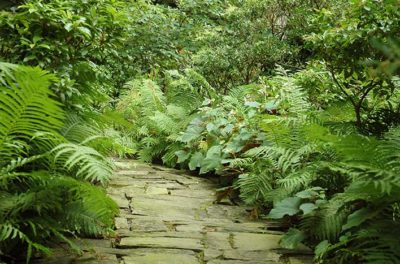The UK is facing an air-quality crisis. Arguably, London has been suffering said crisis for a long time already; in 2019, the city had breached its air quality values limit for the year by March. With tens of thousands of deaths caused by the toxic air every year, it’s a problem that needs everyone’s efforts to solve.

One way to help filter and clean the air is to get out into the garden and plant some air-filtering plants that will help to clean up the air and protect you from the pollution around you. Play bark supplier Compost Direct highlights the best choices below:
Wallflowers for your garden
Wallflowers are the perfect, delicate bloom to help make your garden an air-filtering machine! Goldsmiths also names this plant as being akin to the common ivy for its particulate-cleansing power. These flowers have a bright display of petals during the first half of the year. You can grow wallflowers in many colours, with purple and yellow popular choices.
Gerbera daisies to bring in colour
Thanks to a study by NASA, gardeners have a number of colourful flowers to add into their quest for green! Gerbera daisies are bonny, beautiful blooms that come in many different colours; white, orange, red, pink — whichever you pick, they’ll give your garden a splash of colour. These flowers love direct sunlight and a bit of space, so make sure not to leave them in a shady corner of your garden. NASA also states that these wonderful flowers are great for dealing with multiple air toxins, such as benzene.
English ivy — the one you might already have!
There are many homes in England that already sport the classic look of winding ivy up the walls. Though it has a bad reputation in the States as being a weed, it can be a lovely addition to your garden if tended to. The plant offers benefits for wildlife and for the air – Goldsmiths, University of London, states that the wide leaves of the common ivy traps particulates, which makes it a great choice for purifying the air.
Conifers to keep it contained
Why not swap out your fences for hedges? Hedges are great for combatting air pollution, and Homes & Property recommends conifers for the job. Specifically, the western red cedar hedge is named as an ideal conifer to plant in your garden. But if your garden is a little smaller, the publication also names the yew as a great alternative, citing its evergreen nature and easy trimming.
Practicing greener gardening
Green doesn’t end at the plant. You have to consider how you are tending to your garden as well. Smiling Gardener offers five great ways to reduce pollution in ways beyond planting shrubs and flowers:
- Start composting. You can turn many waste products into compost to stop it going to the landfill.
- Quiet equipment. This one’s more for noise pollution, but it’s certainly an added bonus for the pollution-conscious gardener to take note of!
- Stay away from using pesticides. This one is probably a given, but if you can avoid using chemicals on your garden, please do.
- Avoid corn gluten meal. SmilingGardener notes this meal is made up from genetically modified corn, so best to stay away from using it, if possible.
Consider indoors as well as outdoors. As well as planting outdoor plants to combat air toxicity, consider bringing in some houseplants to cleanse the air in your home.

COMMENTS